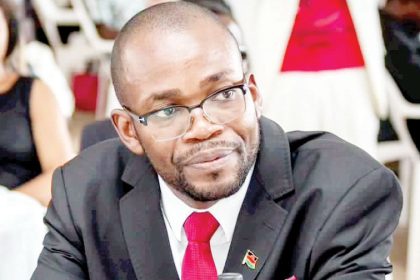By Burnett Munthali
1) Assess his experience and background
Moses Kunkuyu brings a wealth of experience to his position as Minister of Information and Digitalization. As a seasoned politician, he has held various public roles, including as a Member of Parliament. His previous stints in government have provided him with insights into governance and public administration. However, his technical knowledge in digitalization could benefit from enhancement to align with the rapidly evolving technological landscape.
Rating: 6/9
2) Evaluate policy decisions and implementation
Kunkuyu has championed key initiatives such as the expansion of internet access and the promotion of e-government services. However, the pace of implementation has been slower than anticipated, with rural connectivity still lagging. Efforts to regulate digital content and cybercrime remain controversial and require more public engagement.
Rating: 5/9
3) Leadership and decision-making
Kunkuyu is seen as a consensus-builder, often consulting widely before making decisions. Nevertheless, some stakeholders perceive him as overly cautious, which may hinder timely action on critical issues. His leadership style balances inclusivity and accountability, but decisive action is needed in a ministry tasked with driving digital transformation.
Rating: 6/9
4) Communication and public image
As a former spokesperson for his party, Kunkuyu excels in public communication. His ability to articulate government policies clearly and persuasively has enhanced his public image. However, there are instances where his statements have been viewed as overly politicized, undermining his neutrality.
Rating: 7/9
5) Track record on integrity and ethics
Kunkuyu has maintained a reputation for integrity, with no major scandals linked to his name. His emphasis on transparency in his ministry has been commendable. Yet, ensuring ethical compliance across the ministry’s operations remains a challenge in the broader Malawian governance context.
Rating: 8/9
6) Assess the impact of his ministry
Under Kunkuyu’s leadership, the Ministry of Information and Digitalization has made strides in digital infrastructure development and public awareness of digital tools. Nonetheless, the impact on improving service delivery and reducing the digital divide remains uneven, particularly in rural areas.
Rating: 5/9
7) Evaluate financial management and resource allocation
Resource allocation within the ministry has faced scrutiny, with concerns about prioritizing high-impact projects. While Kunkuyu has advocated for increased funding, questions remain about the efficiency and effectiveness of expenditure.
Rating: 6/9
8) Monitor long-term outcomes
Kunkuyu’s initiatives, such as digital literacy programs and e-government services, hold promise for long-term benefits. However, their success hinges on sustained investment and consistent policy implementation. The current trajectory suggests moderate progress toward achieving long-term goals.
Rating: 6/9
9) Compare with other ministers
Compared to other ministers, Kunkuyu is regarded as competent and dedicated. His communication skills and ethical conduct set him apart, though his ministry’s performance in delivering tangible outcomes places him in the mid-range of effectiveness.
Rating: 7/9
Moses Kunkuyu has demonstrated commendable integrity, communication skills, and a commitment to digital transformation. However, challenges in policy implementation, resource allocation, and rural connectivity need urgent attention to maximize the ministry’s impact.
Total Rating: 56/81
Percentage: 69%




